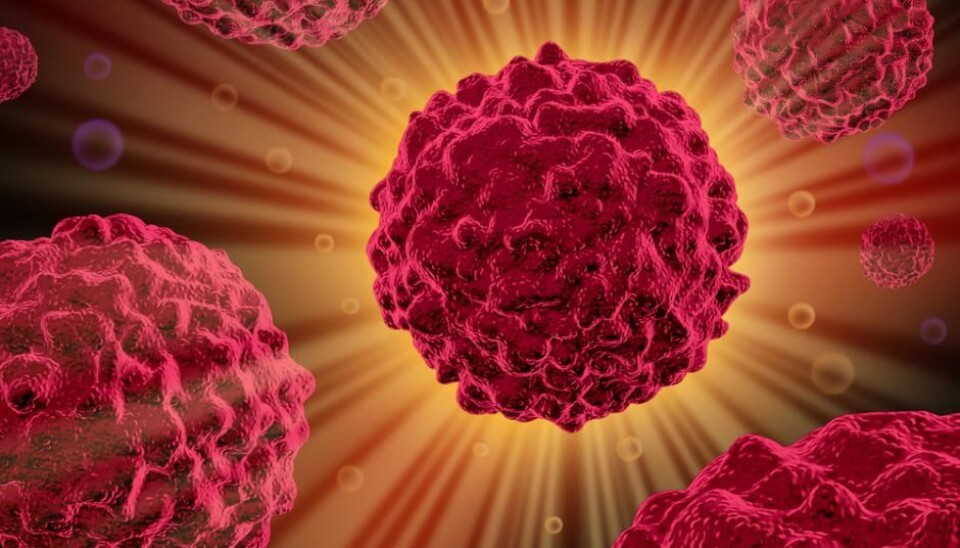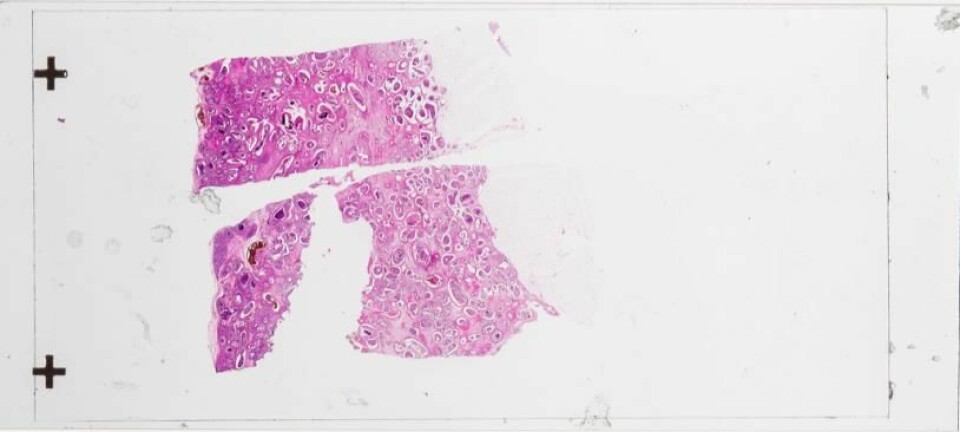
Is immunotherapy really a revolution?
Immunotherapy is one of the most hyped cancer treatments, but we must be careful when hailing it as a revolution, says doctor.
Immunotherapy is fantastic. But it does not work for everyone and it is not a treatment revolution, says Clinical Associate Professor Anders Mellemgaard who works with lung cancer patients in the Cancer Unit at Herlev Hospital, Denmark.
Lung cancer is one of the areas in which immunotherapy has recently gained attention as a form of treatment. But not all patients benefit from this new treatment, and the same applies to other types of cancer.
“It’s great for a small group of patients, but not for everyone, which is the impression you get in the media,” says Mellemgaard. “Some call immunotherapy a revolution, and I just think that it’s important to clarify that it’s only the case for some.”
The correct treatment for each patient
Immunotherapy helps the body’s immune system to recognise, attack cancer cells, and at the same time weaken the cancer cell’s ability to protect itself.
But some patients have to end their treatment due to severe side effects or interference with other medications taken to treat concurrent diseases. In some cases the cancer simply grows too quickly for immunotherapy to take effect in time.
“Immunotherapy has a greater chance of working for certain cancers, but there are others where the chances are lower. So it still depends on selecting the right treatment for a particular patient--just like all other cancer treatments,” says Mellemgaard.
Read More: Immunotherapy does not work for everyone
Immunotherapy is a paradigm shift
The interest in immunotherapy among the media and academics does not surprise immunotherapy expert, Professor Inge Marie Svane, director of the Center for Cancer Immunotherapy-CCIT and chief physician at the Cancer Unit, Herlev Hospital.
Immunotherapy represents a paradigm shift in how we address cancer, and will rewrite the guidelines for all treatments in oncology, she says.
“And if that’s not a revolution, then I don’t know what is,” says Svane.
Read More: The immune system can fight cancer
Revolution is an overstatement
Mellemgaard emphasises that he is not out to deride the importance of immunotherapy. It should “get the credit it deserves” because one should certainly not underestimate how important it is to some patients, he says.
“I would just use the word “evolution” rather than “revolution,” as a revolution to me suggests that the cards are completely reshuffled, and everything is different from before. Immunotherapy is a new instrument and it gives us some opportunities, no doubt about it. But first we must learn how to use it, and we must learn more about all its limitations and possibilities,” says Mellemgaard.
But Svane believes that immunotherapy represents such a fundamental upheaval that the word is appropriate.
“It’s not just a new technique to directly attack cancer cells, which is what we’ve done so far. No other treatments exists where we don’t target the cancer directly, and that’s a major shift in our understanding of the disease. I use the word revolutionary because it means that something has changed profoundly,” says Svane.
Read More: New technology can improve immunotherapy
Immunotherapy is here to stay
Clinical Associate Professor of oncology Henrik Schmidt, from Aarhus University in Denmark, has worked with immunotherapy since 1994. He agrees with Svane.
When asked whether immunotherapy is a revolution in cancer treatment, his answer is clear.
“Yes, it is. The treatment is here to stay and will probably replace chemotherapy in many cases,” says Schmidt.
He points to recent studies that have reported fewer side effects in immunotherapy, when compared with chemotherapy.
“Of course, it’s only natural to think that it’s not the whole answer to cancer treatment. It may also be over-optimistic. But I will say that we need to look at this as a new treatment option, which will represent an improvement for the majority of patients,” says Schmidt.
Read More: Why immunotherapy is such an effective cancer killer
Not a miracle treatment
Svane and Mellemgaard agree that people should not expect miracles from immunotherapy.
“It's the way it’s portrayed in the media,” says Svane.
“Every time we come out with something new, it’s reported as if we’ve “won the battle” or “solved the riddle of cancer.” That’s just the way it is and I [see] it when people contact me with the hope that we can cure their sick family members,” she says.
Immunotherapy is yet to make inroads into two of the most common types of cancer: breast cancer and prostate cancer.
It is impossible to say when a breakthrough could come in these types of cancers, but Svane is confident that it is on the way.
“I’m often asked: 'Well, how long will it take?' And I can’t answer. My guess would be that we’ll crack it for all cancers sooner or later, but that’s still no guarantee that it’ll work for all patients,” she says.
-------------
Read the Danish version of this article on Videnskab.dk
Translated by: Catherine Jex










